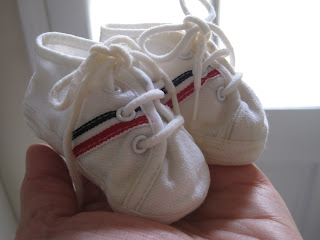I just finished reading Michael Morpurgo's incredibly poignant book,
War Horse (1982). A short novel written for children (ages 10 and up), it's packed with power and emotion. The story is told from the point of view of the horse, "Joey": which I think is brilliant, given the tough subject matter for children.
Through the eyes and ears of Joey we get to know the story's characters and eventually see the devastation and havoc wrecked on the British and German armies and their horses - who served as mounts and beasts of burden to the officers and soldiers of both sides - during WWI. Sadly, most of the horses were killed just as tragically as their human masters.
I have not been lucky enough to see the stage production of
War Horse (adapted by Nick Stafford in 2007), but my husband and I rented the recent Stephen Spielberg film (December 2011). I found myself wishing I didn't have to watch the graphic brutality of war that had been mostly left to my imagination in the book.
 |
| Scene from the movie |
The stage production stars life-size puppets as the horses - created by
Handspring Puppet Company of South Africa. This Tony Award-winning production is the reason for the previously unheralded book's present popularity and recent film adaptation.
 |
| Scene from the play |
In my opinion, the story translated better to the stage than screen, maybe because of the difference in the way we focus on the horses as puppets in the play: they are magnificient and heroic in a magical way. Also, with minimal scenery and props, the audience is still expected to use their imaginations for much of the action.
In both the film and play versions of
War Horse, the story was re-written from the first person point of view to the third person, resulting in the audience experiencing the horse Joey as a character, rather than the narrator. The role of Joey as the heart of the story seems to have been better preserved in the stage play then in the film.
Granted, I'm making this assessment and comparison of the film to what I've only seen of the stage production online, but you can judge for yourself the impact this play performed live would have on family audiences...
Martha Teichner talks to the team behind "War Horse," from CBSNewsOnline:
Some background about the writing of the novel...
From the Imperial War Museum, Mr. Morpurgo learned that between one million and two million British horses had been sent to the front lines in the first World War, and that only 65,000 or so had come back. He resolved to write about them but struggled to find the right voice.
Then one evening he was at the farm he and his wife run in Devon, where poor children come to work with animals. (There are now three in Britain, and one in Vermont.) He was passing through the stable yard when he saw one of the children, a troubled boy who had a bad stutter and had not uttered a word in school in two years, standing head to head with a horse.
“He started talking,” Mr. Morpurgo recalled. “And he was talking to the horse, and his voice was flowing. It was simply unlocked. And as I listened to this his boy telling the horse everything he’d done on the farm that day, I suddenly had the idea that of course the horse didn’t understand every word, but that she knew it was important for her to stand there and be there for this child.” That became Joey’s role in “War Horse” — observer and witness as much as protagonist.
Source:
NYTimes article: "Undaunted Author of War Horse Reflects on "Unlikely Hit"
For Further Behind-the-Scenes Reading about the play, you might like this:
NYTimes Q&A Interview with the Puppeteers of War Horse


















































